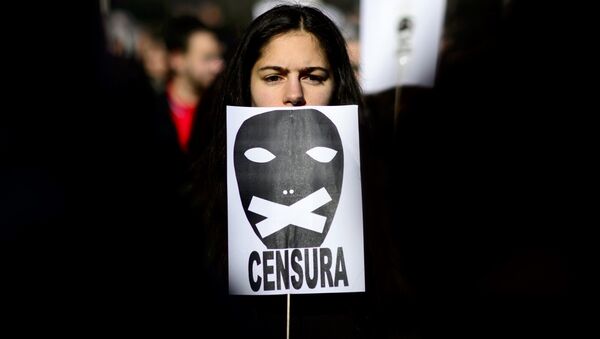Basem Tajeldine, a political expert, said that the demonization of certain countries has become a "fashionable practice in the US and in Europe" that has reached "absurd" levels.
In an interview with Sputnik Mundo, Tajeldine recalled that the US Democratic Party has used alleged external interference "to justify" the defeat of Hillary Clinton in the US presidential election in 2016 against Republican candidate Donald Trump.
The same argument has been recently used by Spain with regard to the independence referendum in Catalonia, the analyst argued.
"They [the authorities] used this as a pretext to justify the failure of the Spanish domestic politics…. In this situation, the ruling elites are trying to find the troublemaker in the outside and hide the real reasons behind the current state of affairs," Tajeldine said.
In particular, he noted that 55 percent of suspicious traffic came from Russia, and 30 percent — from Venezuela. However, he added that he does not have the data to blame the Russian government.
In her turn, Spanish Defense Minister Maria Dolores de Cospedal, was more careful in her assessment; she told reporters that Madrid "doesn't have proof that the Russian government is behind this."
Earlier, Russian hackers were accused of alleged interference in the US presidential election in 2016 and the French elections in 2017. Russia has repeatedly denied these allegations.
In light of the ministers' meeting in Brussels, Sputnik has published a short but detailed analysis of how Spain's most popular newspaper, El Pais, has released articles with distorted information about Russian media, as well as outright lies. Commenting on the move, Tajeldine stressed that "Russian media, such as RT or Sputnik, show the truth to the world."
READ MORE: Sputnik Mundo Deconstructs and Destroys Fake News Published By Spain's El Pais
According to the analyst, the strategy of the Spanish government is aimed at demonizing Russia and Venezuela and presenting them as troublemakers responsible for the internal crisis. He also called the current Spanish government "the most discredited one over a long period of time."




